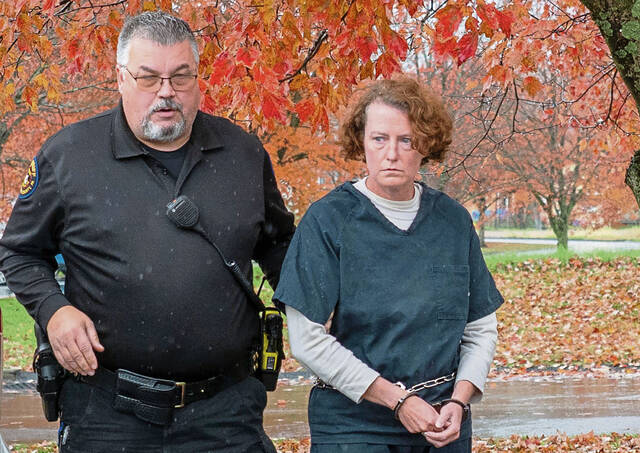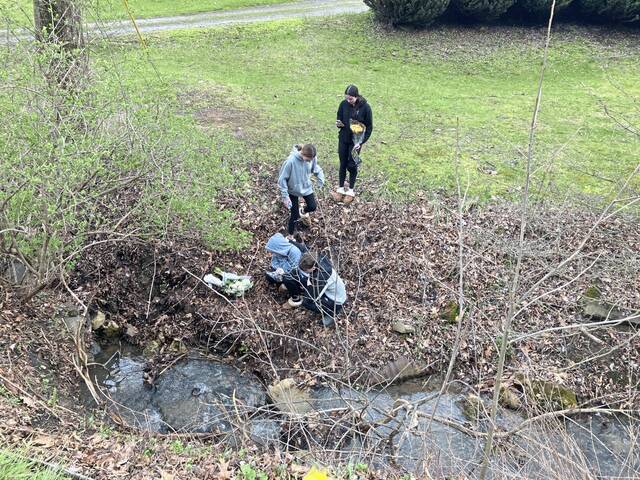Greensburg medical student Jacob Khuri has his sights set on working in internal medicine.
But the 28-year-old native of Jordan continues to think globally when it comes to public health.
After completing his second year of studies at Lake Erie College of Osteopathic Medicine (LECOM) at Seton Hill University, Khuri on Tuesday joined other advocates on a trip to Washington, D.C., lobbying for continued U.S. funding of international efforts targeting AIDS and the HIV virus that causes it.
Khuri was slated to visit the offices of nine legislators on Capitol Hill — including U.S. Rep. Guy Reschenthaler — to urge support for reauthorization of the President’s Emergency Plan for AIDS Relief (PEPFAR). It’s a program that began with bipartisan support in 2003, during the administration of President George W. Bush.
“Twenty-five million lives saved from HIV/AIDS over the last 20 years is an achievement all Americans can be proud of,” Khuri said of the program’s impact, reflecting a U.S. investment of more than $100 billion. “But the fight is far from over.”
He said U.S. lawmakers “must maintain our incredible legacy of leadership in the fight against HIV/AIDS by reauthorizing PEPFAR this year.”
President Joe Biden has requested $6.8 billion for PEPFAR in the 2024 fiscal year, according to KFF, formerly known as the Kaiser Family Foundation.
PEPFAR also is credited with helping 64.7 million people access HIV testing and ensuring more than 5.5 million babies were born HIV-free, according to the ONE Campaign. That global organization coordinated Tuesday’s lobbying effort as part of its goal of ending extreme poverty and preventable disease.
Khuri joined the campaign a little over a year ago.
”It’s an organization that’s passionate about the same things I’m passionate about when it comes to global health,” he said.
He pointed out that covid-19 “can spread very quickly from one part of the world to the next.” While much more intimate contact is required to transmit HIV, it also “doesn’t know geographical borders,” he said.
KFF reports that about 38 million people currently are living with HIV. About 84 million people have been infected with HIV and tens of millions have died of AIDS-related causes since the first cases were recorded in 1981.
Khuri also joined the ONE Campaign in advocating for $72.9 billion in State and Foreign Operations appropriations for the coming fiscal year. In addition to HIV/AIDS, that funding targets tuberculosis and malaria, supports vaccines and dispenses food aid.
Tuesday wasn’t the first time Khuri’s public health mission took him to the nation’s capital. He worked there for much of 2019 as a health care research analyst with a consulting firm.
His work in 2018, as a graduate research assistant with the World Health Organization, focusing on primary health care, included a stint in Kazakhstan.
“I’ve been doing research on refugee health and migrant health since I was an undergraduate,” Khuri said.
He was confronted by that health issue during his final years attending high school in Jordan.
“That was during the Arab Spring, when there was a refugee crisis from Syria to North Africa,” he said. “It really hit me that there were people leaving their homes and crossing very difficult paths into my country.
“It was a very powerful experience that triggered my interest in public health. I knew I wanted to do something related to refugee health.”
Khuri holds a bachelor’s degree in chemistry from the University of Redlands in California and a master’s degree in public health from the Imperial College London in England.
He has co-authored several health research papers, including “A Systematic Examination of Food Intake and Adaptation to the Food Environment by Refugees Settled in the United States.”
Khuri’s enrollment at LECOM resulted from “a moment when I realized I wanted to be interacting with patients on an individual level. I wanted to go to medical school.
“I have two more years of clinical rotations. I see myself as a doctor able to do some work in the United States, but also around the world.”
After five years away, Khuri was able to return to Jordan to visit his family last summer. He found that “the population quickly increased over the years.” He said refugees who have taken up residence in Jordan and others still living in camps outside the border “have had a profound impact on the health care system.
”I see myself doing work back in Jordan, where I grew up. It’s something very close to my heart.”








